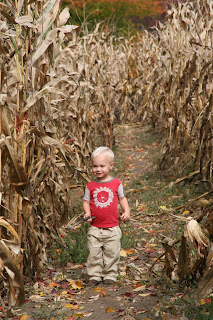Confession: Sometimes
I imagine a life for myself as a Broadway singer. Not the star of the musical, because even my
imagined self doesn’t have that good of a voice, but making my living singing
and dancing.
In fact, right now as I’m supposed to be preparing dinner, I’m
listening to my spotify playlist of SMASH and Broadway show tunes and checking
my favorite performers’ twitter feeds.
I’m having an early-adult-life-crisis.
It’s not that I don’t love my life, or that I actually want
to pack up my family and move to New York.
It’s more that sometimes I feel like there are things that I enjoy,
things that I am somewhat good at, that I don’t get to do much anymore. High schoolers have it pretty good, at least
in my thinking. They get to participate
in numerous sports, sing and dance and perform in musicals and choirs, play
whatever instruments they choose, join debate teams and language clubs and
chess tournaments and everyone bends over backwards to get them to those
rehearsals and performances and games and meetings.
Not so much once you become an adult. Playtime is over and you better be damn sure
that the vocation you’ve chosen will fulfill you all the livelong days.
We Americans are encouraged to specialize – to become
experts and professionals in one narrow field, so that we can beat out the
competition, land the prized job, become respected, and pay the bills. Even within these narrow fields, we are encouraged
to focus even narrower, to the point where only three people in the world
will have enough knowledge and expertise to recognize how damn good you really
are at your job.
In grad school, it wasn’t enough to declare that I was in
the M.A. in English program, in the Literature and Writing track. The next question would be, “what are you
going to specialize in?” Dude, I
dunno. I thought I was doing pretty good
to figure out by the ripe old age of 25 that no, I did not want to be a
theologian, or teach elementary school, or teach high school, or be a
professional musician, or five other things that I either tried out or had been
educated for.
And then I learned what specializing really means…it means
that you choose a small field within the field, and write articles about those
works or authors for an obscure academic journal that 25 people read, all in
the attempt to get publication credits on your CV so that when you’re one
applicant out of 250 vying for that one tenure track position, you stand a
chance at getting the job.
Well, that’s a bit of a cynical take, and I do actually
enjoy writing nerdy academic articles. But
the point is, it’s all very pragmatic.
Why specialize? Why are we
encouraging kids to choose one degree, one emphasis, one job as their target,
from increasingly younger and younger ages?
To compete, to land the job, to be successful.
None of those things are fulfilling, necessarily. Any one thing is not fulfilling,
necessarily.
I am not fulfilled by motherhood, alone. I am not fulfilled by my chosen profession of
teaching, alone. I am not fulfilled by
having a good marriage, alone.
And this is not the truth we are told by Disney movies and
romantic comedies and our high school and college guidance counselors and a
culture that has turned babies into a commodity.
What fulfills me is the moments in my day when I am
connecting with the immaterial within the material. When I have eyes to see and ears to hear, and
my soul is fed by something spiritual in the midst of the very physical world I
live in, of potty training and muddy footprints in the dining room and crumbs
everywhere.
Fulfillment is soul nourishment, and sometimes it means
receiving and sometimes it means giving.
When my husband and I share a joke that is only funny to us
because of our 12 year history of a sometimes difficult and sometimes happy
marriage. When I have a craving to paint
something and I sit down with my kids and the watercolors and experiment and
make something that looks beautiful to me.
When my body tells me to run and I listen to it and am rewarded with
more energy for the rest of the afternoon.
When I see my students’ eyes light up just a little as we discuss an
article we read about Mother Teresa serving the poor. When I just can’t stand how cute my boy is
and I curl him up in a ball in my lap and eat his face until he’s laughing “stop,
Mama!”. When I’m inspired by my Broadway longing to
sing a song at church and it feels good to contribute to worship. When I take an extra deep breath and don’t
snap at my daughter at bedtime and am grateful for connection instead of conflict
in the moments before sleep. When I sit
down and write and write and something finally comes out of me that’s been
stuck inside for too long.
I’m not going to specialize.
I’m going to persist in pursuing a life as a Renaissance woman. I may not ever make it on Broadway, but I’ll
be singing show tunes in my shower for the rest of my life.



































